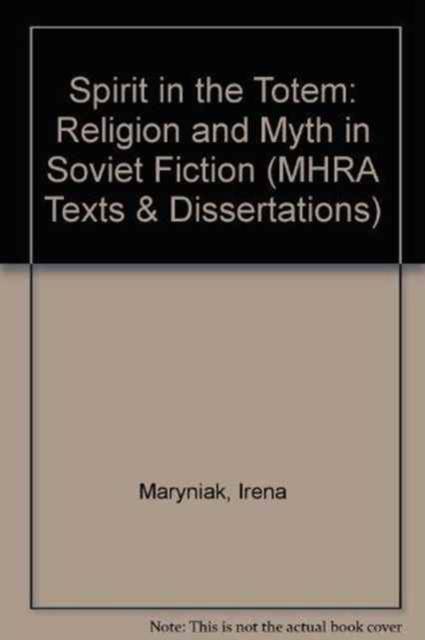
- Afhalen na 1 uur in een winkel met voorraad
- Gratis thuislevering in België vanaf € 30
- Ruim aanbod met 7 miljoen producten
- Afhalen na 1 uur in een winkel met voorraad
- Gratis thuislevering in België vanaf € 30
- Ruim aanbod met 7 miljoen producten
Zoeken
Omschrijving
The book presents an original, interdisciplinary analysis of religious and mythological perspectives in fiction published in the Soviet Union between the mid-1960s and the mid-1980s. In doing so, it points to ways in which anthropological theory can be used as a framework for literary criticism. It also shows how, in the two decades before perestroika, religion and mythology served as alternative models for the intellectual and political reorientation of Soviet society. Selected works are explored with reference to a formative debate in anthropological studies on the nature and development of religion, based on Edward B. Tylor's theory of 'animism' and Emile Durkheim's theory of 'totemism'. It is shown how the animist/totemist dichotomy highlighted by the controversy is reflected in Russian religious thought before 1917 and, particularly, in the literature of the Soviet era. Within the framework of this debate, a selection of novels is discussed in the light of a range of mythological and religious systems. Attention is drawn to the connection between Valentin Rasputin's religious vision and traditional Siberian beliefs, particularly those of the Buryat. The Georgian novel Data Tutashkia, by Chabua Amiredzhibi, is analysed with reference to Zoroastrian thought. Daniil Granin 's Kartina ('The Picture') serves as an example of a work where, in accordance with Tylor's theory, notions of art and beauty take on an animist quality. It is argued that early fiction by Chingiz Aitmatov reveals a tension between animist perceptions and the totemic understanding of religion, and mirrors aspects of pre-Islamic, Central Asian religious tradition. The writing of Vladimir Tendriakov offers an example of a vision divided between an awareness of Christian dilemmas and loyalty to Marxist-Leninist sociological models. The study also shows how Durkheim's theory of religion as an expression of a group's awareness of its identity can be related to ideas put forward by Russian nationalist writers: Iurii Bondarev, Sergei Alekseev and Vasilii Belov. It suggests that examples of fiction by Petr Proskurin, and later works by Chingiz Aitmatov and Vladimir Tendriakov, indicate revived interest in the God-building theory of Maksim Gor'kii and Anatolii Lunacharskii. In conclusion, the book argues that subtextual religious and mythological narratives in Soviet fiction published in the years between the fall of Khrushchev and the Millenium of Christianity in Rus', provided a model for new literary discourse under perestroika and for subsequent political transformations.
Specificaties
Betrokkenen
- Auteur(s):
- Uitgeverij:
Inhoud
- Aantal bladzijden:
- 186
- Taal:
- Engels
- Reeks:
- Reeksnummer:
- nr. 39
Eigenschappen
- Productcode (EAN):
- 9780901286611
- Verschijningsdatum:
- 1/07/1995
- Uitvoering:
- Paperback
- Formaat:
- Trade paperback (VS)

Alleen bij Standaard Boekhandel
+ 83 punten op je klantenkaart van Standaard Boekhandel
Beoordelingen
We publiceren alleen reviews die voldoen aan de voorwaarden voor reviews. Bekijk onze voorwaarden voor reviews.











